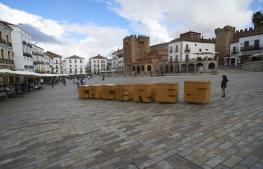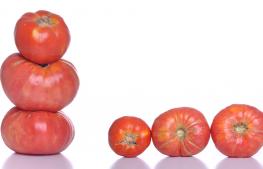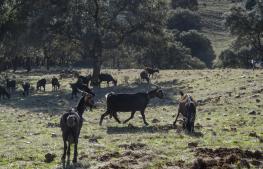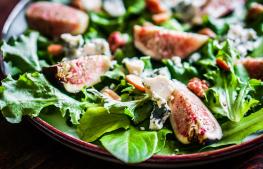Jams and preserves
Traditional recipes
Homemade or artisanal jams are a high-quality product, since they are made with the utmost care, respecting traditional process that have been passed down from generation to generation. They know a lot about this in the Jerte Valley, where they are great producers not only of fruits but also fruit products, such as delicious preserves.
It will come as no surprise that one of the stars is Jerte Valley Picota cherry jam. But that is not all. In addition to the fine selection of cherry jams that come from the province of Cáceres, there are also jams made from strawberries, quinces, oranges, tomatoes, carrots, plums and peaches, as well as figs and chestnuts in syrup, two native products that are very deeply rooted in the local history.
The production process still takes place artisanally, based on a selection of healthy, ripe fruits. After the fruit is selected, it is deseeded and crushed. Next, it is mixed with water and sugar, softening it. The following step is vacuum cooking at a low temperature, an essential requirement so the fruit retains its colour and flavour.
After cooking, a bit of lemon juice is added to the product to regulate the acidity, if needed, and then the jam is packaged, where a steam system allows it to be vacuum sealed.
The final step in the production process is pasteurisation. This consists in placing the jars in a boiling water bath for around 15 minutes. After that time, the product is ready for the label to be attached.
The jams do not contain any kind of preservatives and are made from fresh fruit, not pulp. This makes it a more delicate product with a delicious finish, perfect for accompanying both sweet and savoury local dishes.
If you like Jams and preserves you will like this too...
Craft beers
More and more people are wanting to try real beers and different flavours, which has led to the popularity of craft beers skyrocketing in recent y
Tomatoes
The town of Miajadas, in the south of the province of Cáceres, is closed linked to irrigated land, where rice and tomato growing play key roles.
Ibores Cheese
Extremaduran goat’s cheese has its own name: Ibores Cheese.
Figs
Spain is the largest fig producer in Western Europe and, by region, Extremadura is leader in area and cultivation of fig trees.
More things you can find in Cáceres

Old Town of Cáceres
The decree declaring Cáceres as a Monumental Site was published on 21 January 1949, and in 1986 UNESCO included the Old Town of Cáceres in its list

Monumental city of Cáceres
The topography plays an important role in the urban development of Cáceres, as the city stands on uneven ground, between the Sierra de la Mosca mou

Festivals of Tourist Interest
The province of Cáceres is home to one Festival of International Tourist Interest and two festivals declared as being of National Tourist Interest.





